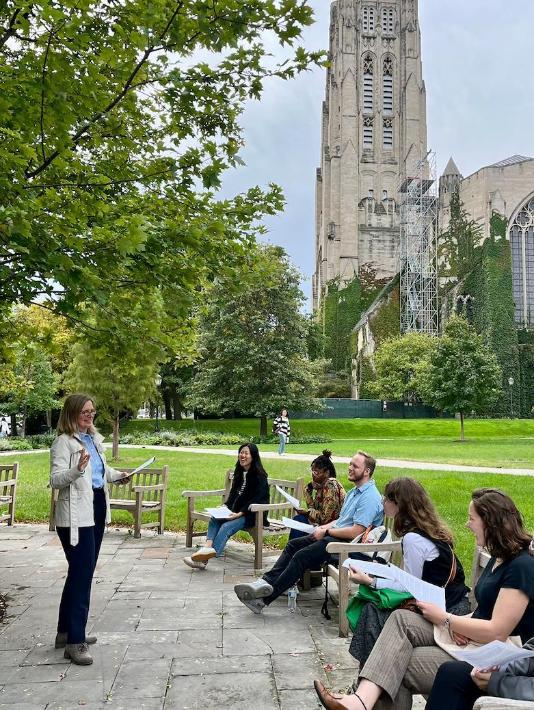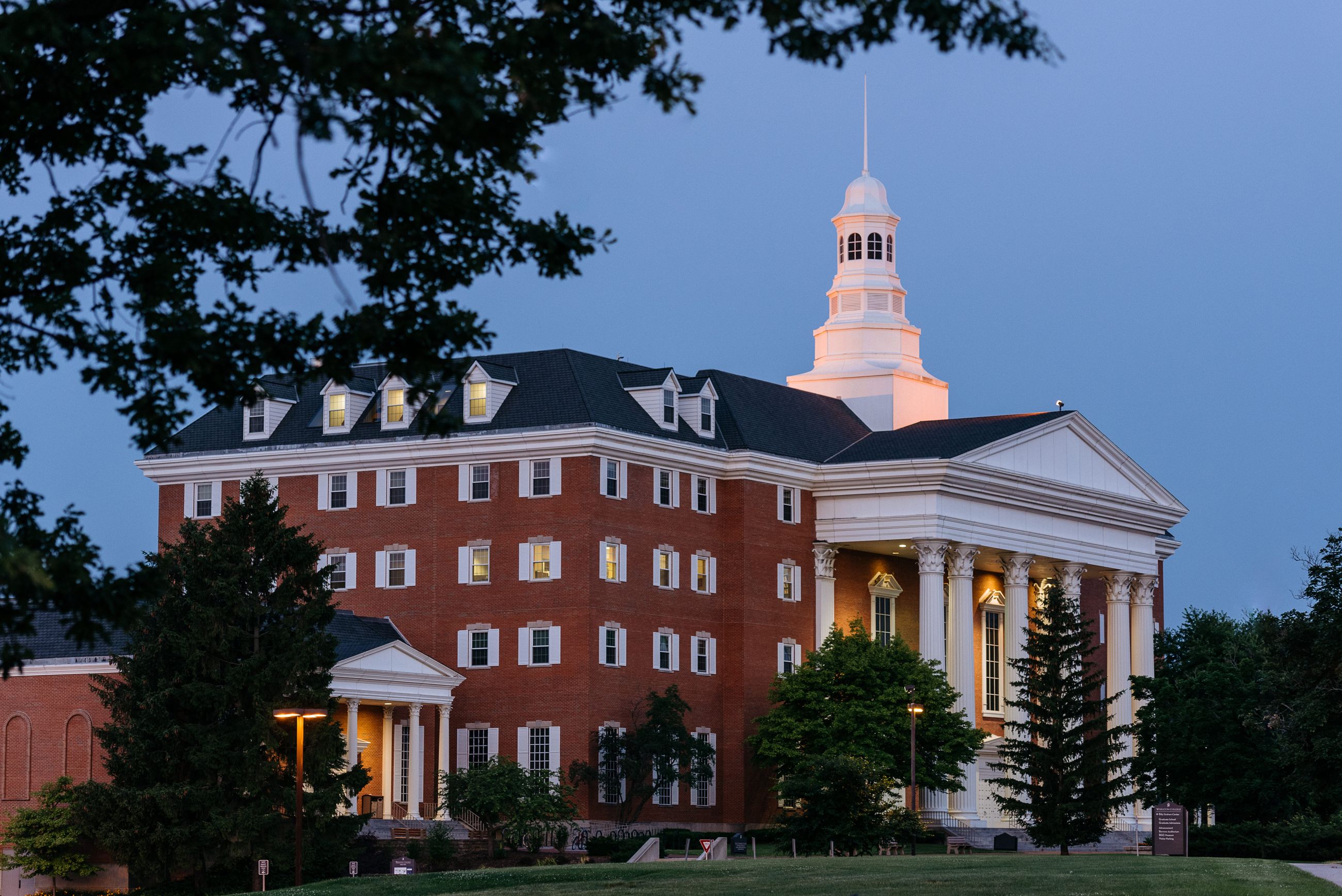HESD Students Visit the University of Chicago

Is there an advantage to pursuing a professional degree in higher education within a liberal arts institution? We certainly think so. The curriculum in our Higher Education and Student Development program (HESD) is not only concerned with contemporary challenges but also with understanding the historical foundations of higher education and Christian thought in the public sphere. This comprehensive approach helps our students discern today’s complexities and perhaps even develop a prophetic vision for the future of Christian higher education.
This fall (2024), the students in HESD 595, Higher Education: Past, Present, and Future, took their learning beyond the classroom by touring the campus of the University of Chicago, a university prominently featured in our course readings. In particular, the visit allowed students to engage with the historical developments explored in George Marsden's Revisiting the Soul of the American University: From Protestant to Postsecular. By walking through sites discussed in their readings, students were able to see firsthand how the shift from Christian roots to a more secular identity has shaped both the physical and intellectual landscape of one of America’s leading research universities. As part of the visit, students toured the impressive Rockefeller Chapel, a major landmark on the University of Chicago’s campus. While it was originally designed to reflect the university’s blend of spiritual and intellectual life, today its famous clarions are more of a soundscape than an expression of the values they once represented. Students even got the chance to play the clarions themselves, adding a personal and memorable touch to the experience.
The visit concluded with a lovely lunch and time of fellowship with members of InterVarsity. Students had the chance to meet Rev. Eric Flood, Campus Staff Minister at the University of Chicago, and Kirstin Yu, the campus minister for the Asian/Asian American chapter of InterVarsity. Both shared encouraging updates about their work ministering to college students at this remarkable institution, offering inspiration and insight into the spiritual landscape of a university known for its intellectual rigor.
Both flexible learning (remote) and residential students took part in this unique visit. "The learning community is an incredibly important part of our education at Wheaton College—it is not only the context within which we learn but the means to learning itself"; commented Dr. Dietlin, who led the trip. This shared experience allowed students to come together and deepen their understanding of higher education’s history through direct engagement with the spaces they had studied.
